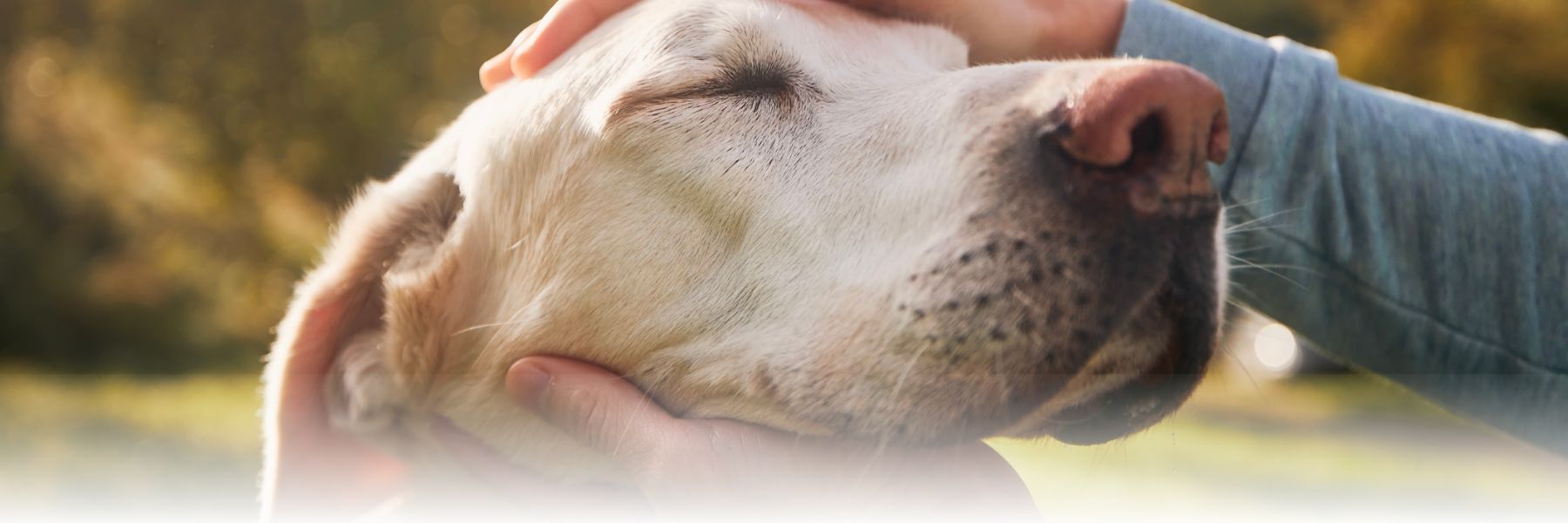
The Paw-sitive Impact of Pets on Senior Adults
Let’s take a moment and think back to childhood and remember your first pet. You simply knew that you wanted a pet, whether it was a cat or dog, you just wanted a pet. Your parents reminded you of the responsibilities of pet ownership. You had to feed your pet at a certain time. Remember taking them for a walk or cleaning out the litter box.
Another thing you will remember is that unconditional love that your pet gave you. Maybe when you weren’t feeling well, your pet would always keep you company. Maybe you had to stay home from an event. That never makes any kid happy, but your pet was right there with you the entire time and that made you feel better.
Top Benefits of Pets for Older Adults
Fast forward to today. That unconditional love hasn’t changed just because you got older. In fact, pets can provide many benefits for older adults! Let’s take a look at some key benefits to owning a pet in your older years:
Companionship
Pets can help reduce feelings of loneliness and isolation, which are common in older adults. Dogs and cats can be a source of companionship so that seniors know they’re never truly alone. They may not talk back, but they sit quietly and listen, pay attention to what the person is doing, get excited when their owner comes home or wants to play, and are often happy to just sit with them.
The significance of pets in the lives of older adults residing in senior living communities cannot be overstated. These furry friends serve not just as companions but as catalysts for enhanced well-being, playing a pivotal role in the physical, mental, and emotional health of older adults. The integration of pet companionship within senior communities offers a unique blend of joy, comfort, and numerous health benefits, making it an area worth exploring for the improvement of quality of life in senior years.

Mental Health
Pets can help reduce stress, anxiety, and depression. Petting a cat or dog releases endorphins, which can boost mood. Pets offer endless love and affection. Spending time with a pet can help reduce depression and bring a smile to older adults’ faces. Pets can help boost self-esteem. Animals do lots of funny and crazy things that make people laugh, so just watching them can improve mood.
Loneliness and social isolation are significant issues that affect a large number of seniors, leading to various negative health outcomes, including depression and a decline in overall health. Pets offer constant companionship and unconditional love, helping to fill the emotional void that can be present in the lives of many older adults.
Pets often serve as social catalysts in senior communities. For instance, walking a dog or just sitting with a cat in a communal area can lead to increased interactions with others. These interactions foster a sense of community and belonging, which is vital for mental health.
The act of petting or caring for an animal has been shown to reduce stress levels, calm anxiety, and elevate mood. This is attributed to the release of serotonin, which is a hormone that evoke feelings of happiness, relaxation, and bonding. Pets provide a unique form of emotional support, offering comfort during difficult times.
Having to care for a pet provides older adults with a sense of purpose and daily responsibility. This routine and the need to attend to another living being can significantly boost self-esteem and contribute to a more positive outlook on life.
Physical Health
Having a pet can help improve cardiovascular health, strengthen muscles, and enhance mobility. The responsibility of caring for a pet can also help older adults maintain an active lifestyle.
Caring for a dog often means taking them out for walks daily. This can be a great way to get older adults moving, which can help with overall mobility. They can stay active by throwing a ball, playing with feather or string toys, or simply moving around to play with their dog or cat.
Regular physical activity is crucial for maintaining health and mobility in older age. Interaction with pets has been linked to an enhanced immune system and a faster recovery from illness. The stress-reducing effect of pets plays a significant role in this, as stress can negatively impact the immune system. The outdoor activity that comes with pet ownership can expose older adults to a moderate amount of sunlight, which is necessary for Vitamin D production, further supporting immune health. Pets can also help lower cholesterol levels.
Sense of Purpose
The daily structure of caring for a pet can provide a sense of purpose and accomplishment. Taking care of a pet is a lot of responsibility. Older adults know that their dog or cat is relying on them for food, water, grooming, care, and attention. Having to walk the dog each morning can give them a reason for getting up out of bed. It can also create a consistent routine for the day giving them something to do.

Cognitive Benefits
Activities like teaching dog tricks or playing with a cat can stimulate the brain. Regular interaction with pets has been shown to stimulate mental faculties in older adults, keeping their brains active and engaged. The routine of caring for a pet, combined with the sensory stimulation from touch and social interaction, can enhance cognitive function. Activities such as remembering feeding times, grooming, and playing with pets can serve as daily mental exercises that promote brain health.
Older adults with pets often display improved memory and sharper cognitive abilities. The responsibilities associated with pet care require attention to detail and adherence to routines, which can help in maintaining and improving cognitive skills. The joy pets bring can lead to increased curiosity and a desire for learning, further stimulating cognitive function.
Interaction with animals has been found to have therapeutic effects on seniors experiencing symptoms of cognitive decline, such as those associated with Alzheimer’s disease and dementia. Pets can provide a calming influence, reducing agitation and anxiety among older adults. The non-verbal communication and unconditional love offered by pets can reach beyond the barriers imposed by cognitive decline, providing comfort and reducing behavioral issues.
The combined effects of increased physical activity, social interaction, and mental engagement associated with pet companionship contribute to overall brain health. Studies have shown that these activities can help delay the onset of cognitive decline and even improve brain function, leading to a better quality of life for older adults.
Help around the House
Even if a dog is not specifically trained as a service animal, that doesn’t mean they can’t learn basic commands and tasks. With a little work and patience, older adults may be able to teach their dog to retrieve things, pick up dropped items, walk right next to them, or help stabilize them as they stand up or sit down.
Reduced Blood Pressure
Pets can help lower blood pressure. In addition to dogs helping seniors be more active, owning a pet can help reduce stress and lower blood pressure as well. The simple acting of petting a dog or cat can ease tension and stress while releasing endorphins to boost mood.
Several studies have indicated that pet ownership can lead to lower blood pressure and a decreased risk of heart disease. The act of petting an animal has a calming effect, which can reduce stress and in turn, lower blood pressure. Additionally, the increased physical activity associated with pet care can contribute to cardiovascular health.
Studies Show Pets Enhance Senior Adult Lives
A curled-up cat, a tail-wagging dog, a chirping parakeet may help older adults cope with mental and physical health issues, according to a recent national poll.
Two-thirds of all pet owners, and 78 percent of dog owners, said their pet helps them be physically active, according to the new findings from the National Poll on Healthy Aging. For those who reported that their health was fair or poor, pet ownership appeared to offer even more benefits. More than 70 percent of these older adults said their pet helps them cope with physical or emotional symptoms, and 46 percent said their pets help take their mind off pain.

Embracing the Joy of Pets in Our Golden Years
The bond between seniors and their pets truly is special. Those furry companions bring a wealth of benefits that enhance both mental and physical well-being. From reducing loneliness to encouraging daily activity, pets have an incredible ability to uplift spirits and provide comfort. Dogs specifically have been proven to reduce stress, anxiety and depression, ease loneliness, encourage exercise, and improve your overall health.
So, whether it’s a playful pup or a cuddly cat, a pet in the life of senior adults can make a world of difference. The love and joy they offer can fill their days with purpose and happiness.
If you or a loved one is considering moving to a senior living community, consider taking a tour of one of The Ohio Masonic Communities campuses. With three senior living communities across the state of Ohio – Browning Masonic Community in Waterville, Ohio, Springfield Masonic Community in Springfield, Ohio, and Western Reserve Masonic Community in Medina, Ohio – each offers premier living options all pet-friendly with exceptional experiences so older adults can live their best lives. If you are interested in learning more about one of our communities, give us a call at 1-877-881-1623 or schedule a visit.